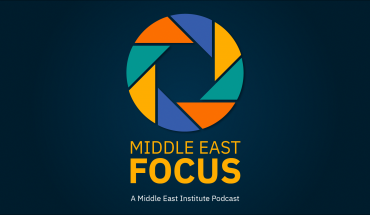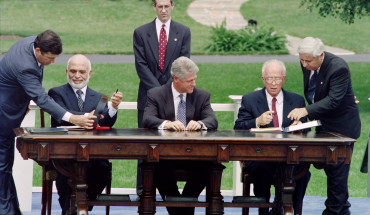The Iranian Intelligence Ministry announced on Wednesday that its agents had seized two large caches of weapons and explosives intended for “terrorist operations” in public areas, the Iranian media reported. According to a statement released by the ministry, the ammunition and explosives were seized in two separate operations in the country’s restive eastern and western regions. One large cache was found in eastern Iran and included about two dozens of remote-controlled bombs, which were allegedly smuggled into Iran from the eastern border. The second cache was discovered in Marivan, a town in Iran’s northwestern province of Kurdistan. The statement added that the cache consisted of bomb-making material, electronic detonators, rocket propelled grenades and more. The ministry alleged that a Kurdish separatist group had smuggled the material into Iran from the Iraqi Kurdistan region. In a separate statement, the Intelligence Ministry also called on the Iranian citizens to contact the ministry to report any suspicious individuals.
Comment: In its statement, the Intelligence Ministry accused Saudi Arabia of aiding separatist and militant groups to conduct attacks inside Iran, but it provided no evidence to substantiate its claim. And it is not the first time that security and intelligence forces have seized large quantities of weapons and ammunitions in the border areas. Over the past year, Iran’s southeastern and northwestern regions – home to marginalized ethnic and religious minorities – have seen an uptick in violence by separatist and terrorist groups.
Earlier this month, the Islamic Revolution Guards Corps (IRGC) said that its forces had seized a cache of explosives and suicide vests in the restive southeastern province of Sistan and Baluchestan. According to a statement released by the public relations department of the IRGC Ground Force’s Quds Base (not to be confused with IRGC’s elite Quds Force responsible for external operations), the explosives and other assets were captured in the Saravan county of Sistan and Baluchestan. “This shipment which the terrorist group ‘Jond al-Shaitan’ was attempting to smuggle into the country to create security problems and riots and [conduct] terrorist activities] was seized by Islam’s warriors,” the statement added – referring to Jundullah militant group that operates in Iran’s Sistan and Baluchestan as well as in Pakistan’s Baluchistan Province.
With a sizable yet largely marginalized Sunni population, Sistan and Baluchestan can be a breeding ground for local militant and separatist movements as well regional and international terrorist groups such as the Islamic State and al-Qaeda. Sunni Baluchs, who constitute a plurality of the population in the province, have long suffered state-sanctioned discrimination, economic marginalization, cultural repression, disproportionate executions, torture, detention without trials and extra-judicial killings. Sistan and Baluchestan also borders Afghanistan and Pakistan, where the Islamic State has gained a foothold recently.
Security is tense in Iran’s western border provinces as well. Last month, unidentified gunmen killed and injured several Iranian border guards in West Azerbaijan Province near the Turkish border, the Iranian media reported. While the Iranian media have yet to release details of the incident, the gunmen appear to have crossed the border from Turkey into Iran. And in November, the Iranian media reported that at least eight Iranian border guards were killed in clashes with an armed group in the same province. A week prior to that, the IRGC announced that its forces “dismantled a terrorist team” in the same area. According to a statement released by the public relations department of IRGC’s Hamze Sayyid al-Shohada Base, four “terrorists’ were killed in armed clashes between IRGC forces and the militants. The statement did not reveal the group’s identity, but alleged that it was “affiliated with the Global Arrogance” – a term Iranian officials often use for the United States and its allies. Several other clashes between militant groups and security forces took place in August and September in West Azerbaijan.
Iran’s Intelligence Ministry last year also revealed that the country’s security forces had disbanded nearly 100 “terrorist groups” across the country. “Highly serious measures have been taken in the Southern, Southeastern and Western parts of Iran and nearly 100 teams have been confronted," the deputy Iranian intelligence minister said.
In the northwest, the PDKI has resumed armed resistance against the Iranian regime. Mustafa Hijri, PDKI’s secretary general, said last January that their resistance was not “just for the Kurds in Iran’s Kurdistan, but it is a struggle against the Islamic Republic for all of Iran.” PDKI militants based in the Iraqi Kurdistan region have repeatedly crossed the border and clashed with the IRGC in the Iranian province of Kurdistan.
When the anti-regime protests broke out across Iran in late December, four Iranian Kurdish political parties and militant groups voiced support for the protests. The groups urged the international community to back the Iranian people’s “legitimate demands.”
It remains to be seen whether these militant attacks at a time that the country is encountering nationwide protests will force the IRGC to curtail its expanding regional role and focus on domestic unrest.
The Middle East Institute (MEI) is an independent, non-partisan, non-for-profit, educational organization. It does not engage in advocacy and its scholars’ opinions are their own. MEI welcomes financial donations, but retains sole editorial control over its work and its publications reflect only the authors’ views. For a listing of MEI donors, please click here.












